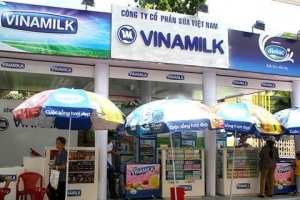World Markets

At the “Milk Forum” held yesterday, panellists raised concerns that the seamless trade under the AEC would pose huge challenges for the Thai dairy industry.
Vorathep Rangchaikul, managing director of Dairy Plus, said the Thai dairy industry had survived thanks to high tariff barriers that protected local farmers.
The free-trade agreement and the AEC would hurt Thai dairy producers, as they will not be competitive enough.
Other major dairy products producers such as Australia, New Zealand, South Korea and China would easily penetrate the Thai market under the free-trade pacts and hurt local producers, he said.
The cost of Thai dairy production is now higher than that of competitors, while the efficiency is also lower. For instance, the production capacity of each cow in Thailand is only 10 kilograms a day, while the average production standard is 15-16kg a day. Some countries produce up to 25-30kg per day per animal.
The price of Thai fresh milk is also higher than powdered milk by 40 per cent.
Because of the high price of milk in this country, the average consumption by Thais is only three tablespoons a day, 13 litres a year lower than the average annual consumption of Asians of 60 litres.
Vorathep called for an agency to be responsible for more development in the dairy industry.
He also pointed out that Thai dairy producers faced challenges from Vietnam and China. The production capacity of Vinamilk, the state-owned producer of dairy products in Vietnam, is three times that of Dutch Mill, besides having a greater variety of products.
Vinamilk has also taken over businesses in New Zealand and Israel to complement its plan of becoming a leading milk producer in Asean. Thai products are now facing tough competition from Vietnamese milk in the Cambodia market.
Also, a China-based milk producer, Mengniu, is penetrating the Thai market now.
Visit Limprana, chairman of the Food Processing Industry Club of the Federation of Thai Industries, said free trade among Asean and other partner countries, mainly China, would open up opportunities for the influx of fresh milk and other goods into the Kingdom.
“The local dairy industry, which is worth Bt60 billion a year, could be seriously affected because of the increased competition, as Thai milk is more expensive,” Visit said.
He urged Thai dairy farmers to develop their competitiveness and production. Otherwise, more than 20,000 dairy-cow farmers could be forced out of the industry.
Nutthawut Prateepawanich, secretary-general of the Dairy Cooperative of Thailand, has called for concerned government agencies and private enterprises to help develop dairy farming and reduce the cost of production.





















